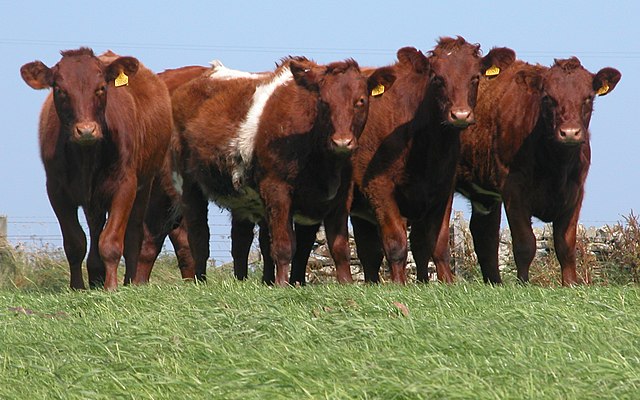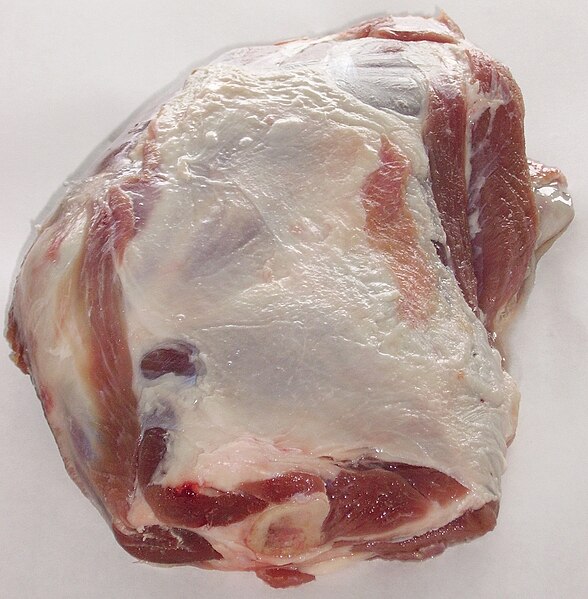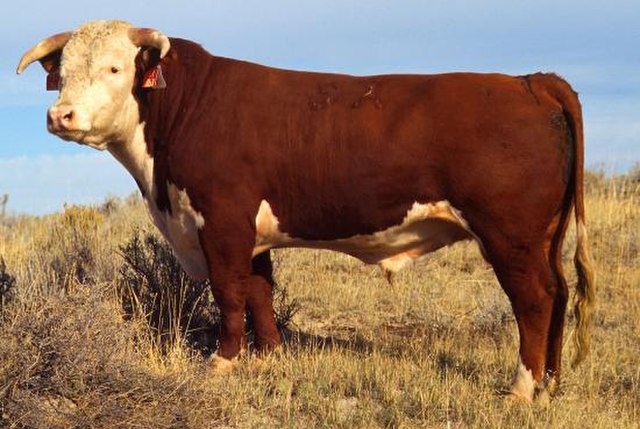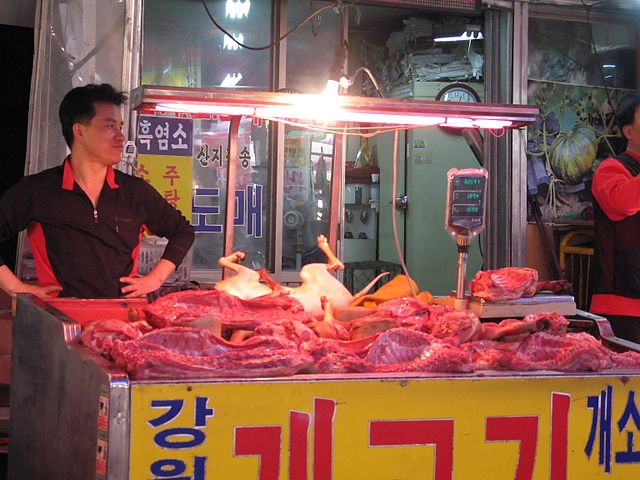Conversations regarding the ethics of eating meat are focused on whether or not it is moral to eat non-human animals. Ultimately, this is a debate that has been ongoing for millennia, and it remains one of the most prominent topics in food ethics. Individuals who promote meat consumption do so for a number of reasons, such as health, cultural traditions, religious beliefs, and scientific arguments that support the practice. Those who support meat consumption typically argue that making a meat-free diet mandatory would be wrong because it fails to consider the individual nutritional needs of humans at various stages of life, fails to account for biological differences between the sexes, ignores the reality of human evolution, ignores various cultural considerations, or because it would limit the adaptability of the human species.
Various types of meat
Cattle carcasses in a slaughterhouse
Shorthorn heifers, a typical multipurpose breed of cattle
Vegan Holocaust survivor Alex Hershaft (pictured) has compared the treatment of livestock to the Holocaust, and stated that the reason he survived was to end the oppression of animals.
Meat is animal tissue, often muscle, that is eaten as food. Humans have hunted and farmed other animals for meat since prehistory. The Neolithic Revolution allowed the domestication of animals, including chickens, sheep, goats, pigs, horses, and cattle, starting around 11,000 years ago. Since then, selective breeding has enabled farmers to produce meat with the qualities desired by producers and consumers.
A selection of uncooked red meat, pork and poultry, including beef, chicken, bacon and pork chops
A shoulder of lamb
A Hereford bull, a breed of beef cattle
Dog meat on sale, South Korea







